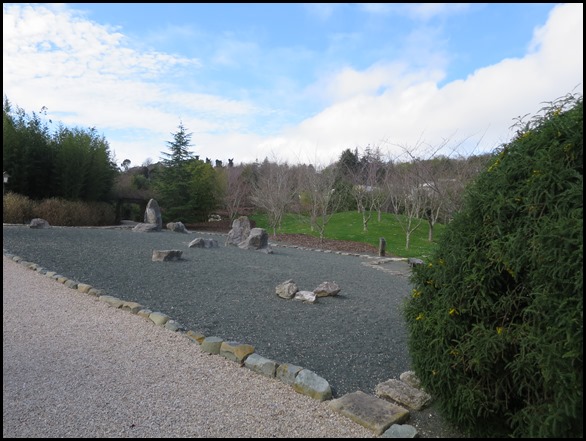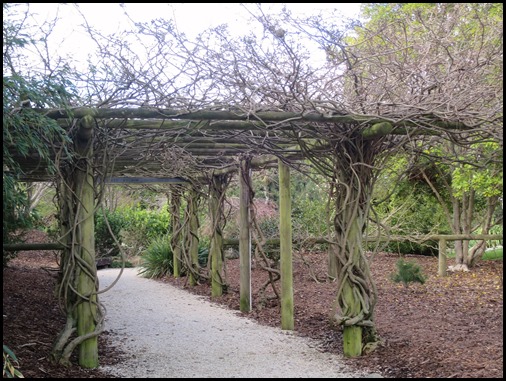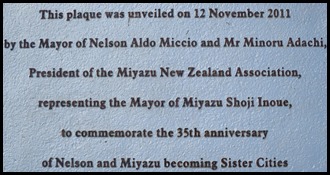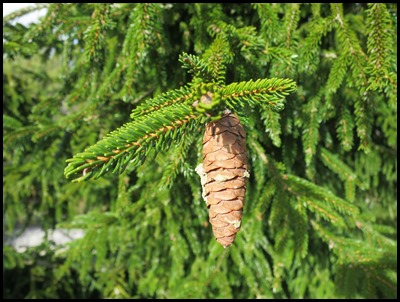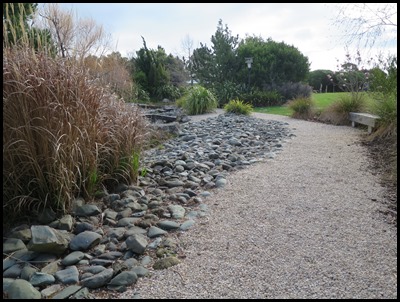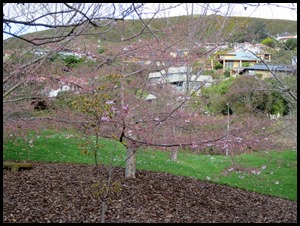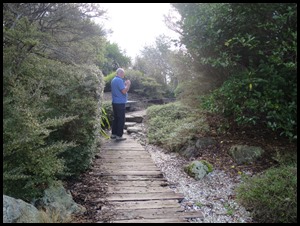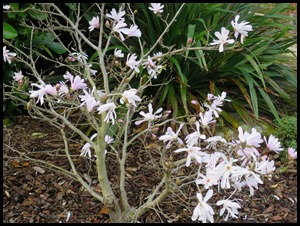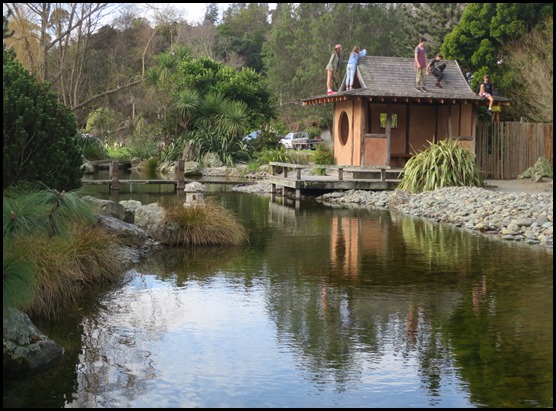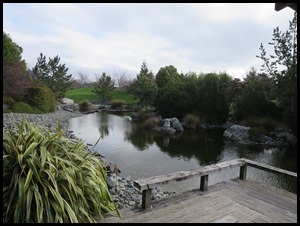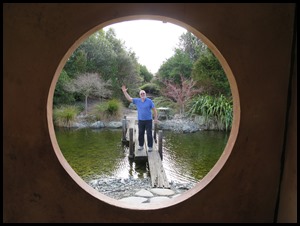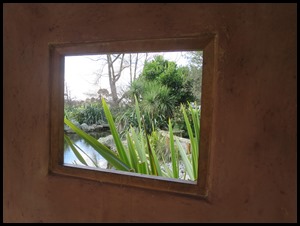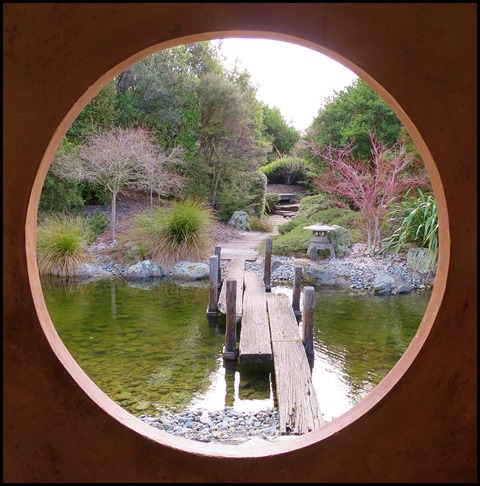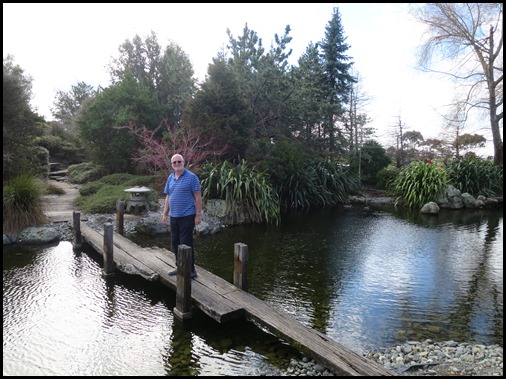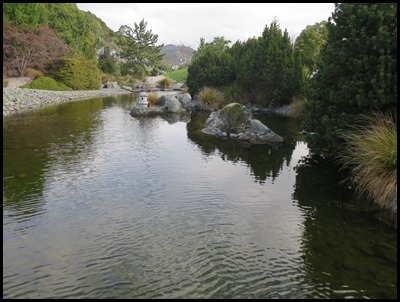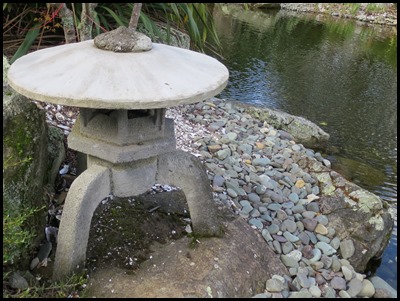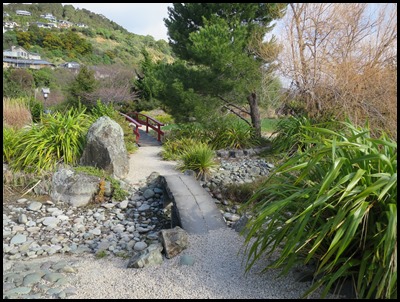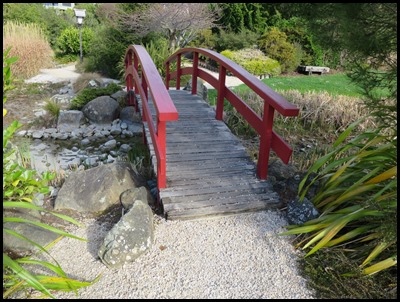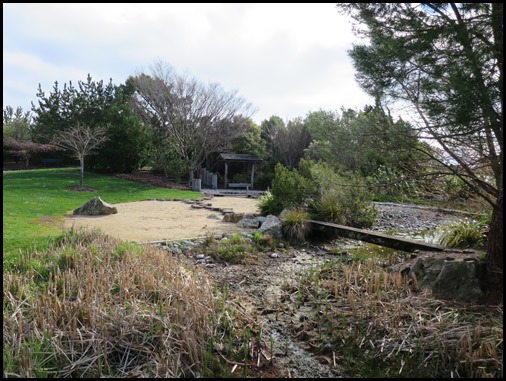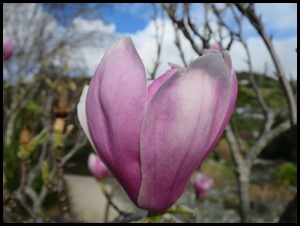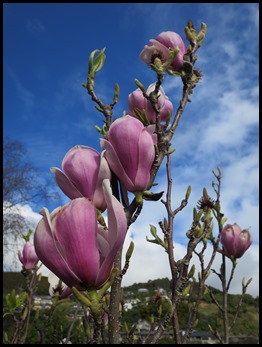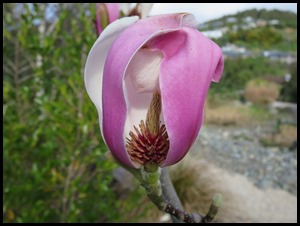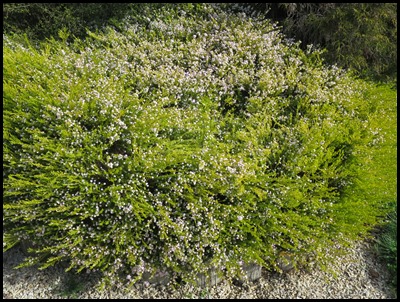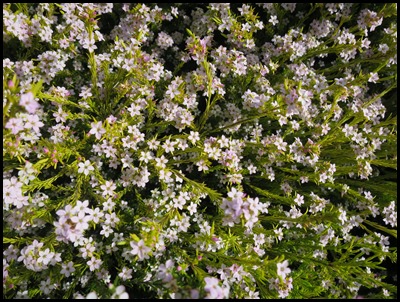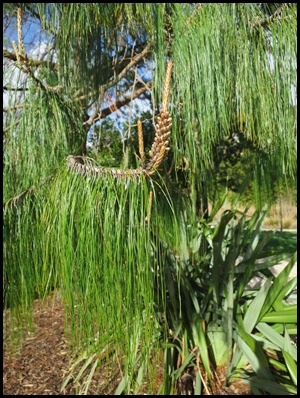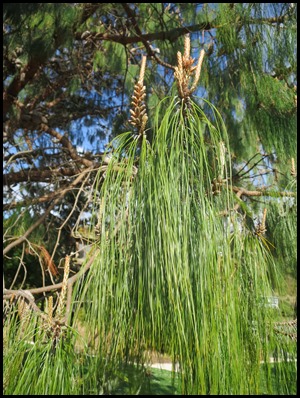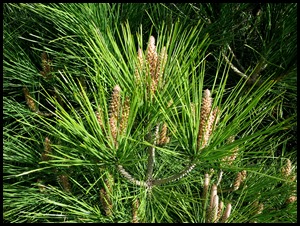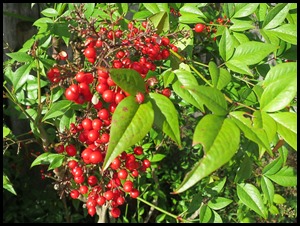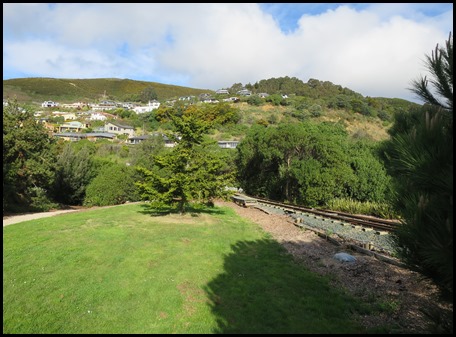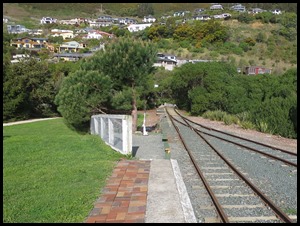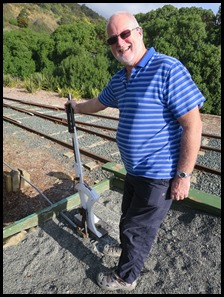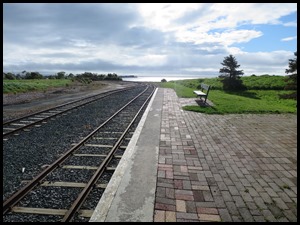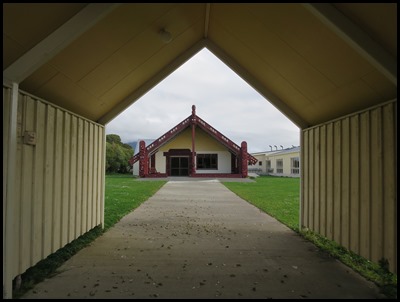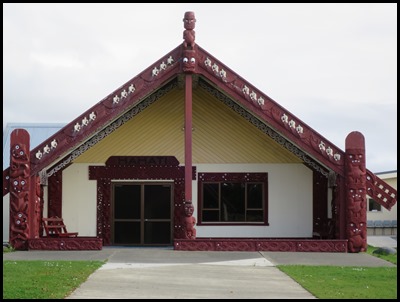Miyazu Garden, Nelson

|
Miyazu Garden, Nelson
The Miyazu Garden celebrates Nelson's relationship with its Japanese sister city. As soon as you walk through the gate made from old timber recycled from the port, the street noise is screened out with an immediate feeling of enclosure. Still reflective ponds, trickling bamboo spouts and melodic cascades enhance the sense of serenity.
This arch must look stunning in full bloom.
One of the plaques.
Doing a circuit of the garden from the entrance you come first to the Dragon Pond, overhung by Jim's Pine, a weathered and windswept thirty year old bonsai. The peninsula symbolises the Boulder Bank which is a landscape feature similar to Miyazu¹s Amanohashidate.
The contrasting textures of foliage, wood, water and rock pull the whole picture together. Nelson City Council has aimed to develop a garden of peace and tranquility which will be enhanced as the garden matures.
We followed the stepping stones towards the pondside pavilion, we passed a stone basin used for ritual cleansing before the tea ceremony. The large flat stone beside the deck is called a shoe removing stone.
Pretty view from the pavilion, Play School, “through the round window or through the square window.”
“Through the round window.”
Crossing the three plank bridge, we listened for the sound of the shishi odoshi, a kinetic fountain - originally used in gardens to keep wild animals out. The sturdy bridge between the islands symbolises the friendship between the sister cities.
Shakkei is the art of using scenery beyond the garden to enhance its beauty and increase the perception of size through the use of perspective. Traditional lamp.
In late 2008 Council filled the base of the main pond with sand, the traditional Japanese material used to represent water.
Now the pond has a layer of gold and creamy coloured dolomite sand spread over the base and raked in the Japanese style. Water leaks in that pond had seen major drainage and significant cost to keep it filled. The still-settling land caused the concrete pond liner to break. Shame as the lack of water makes the pond look swampy and unkempt.
No Japanese garden would be complete without a tulip tree.
A happy bush.
We loved these cones with their hair pieces, but I forgot to get the ‘Bear finger’ in to show how big they were. About a foot long.
Pine and Berries.
The hillside overlooking the Miyazu Gardens is known as Walter’s Bluff. The name is a clever play on words originating from a fragment of social history. Nelson always longed to have a rail link with the rest of the South Island. All it ever achieved was an uneconomic sixty miles of line to the south which closed in 1955. A new government under Walter Nash promised a rail link with Blenheim and work began near here in 1960. The work was stopped after another change of government in November 1960. Many had regarded Walter Nash’s promise as an election bribe. One of these cynics wrote Walter’s Bluff on a board and put it at the hill, it struck such a chord that the name persisted and was officially adopted when the hillside was subdivided for housing.
Looking toward Walter’s Bluff. A new toy for Bear. Looking out to sea.
Whakatu – now Nelson Haven and Nelson City, was strategically placed along important trade routes for early Māori. Different tribal groups over many years utilised the position of Whakatu and its abundant natural resources. Whakatu Marae is the spiritual, cultural, a social meeting place for local Māori tribes and where we had parked Mabel.
ALL IN ALL A LOVELY WAY TO SPEND AN AFTERNOON BIMBLE A SURPRISING LITTLE FIND |
